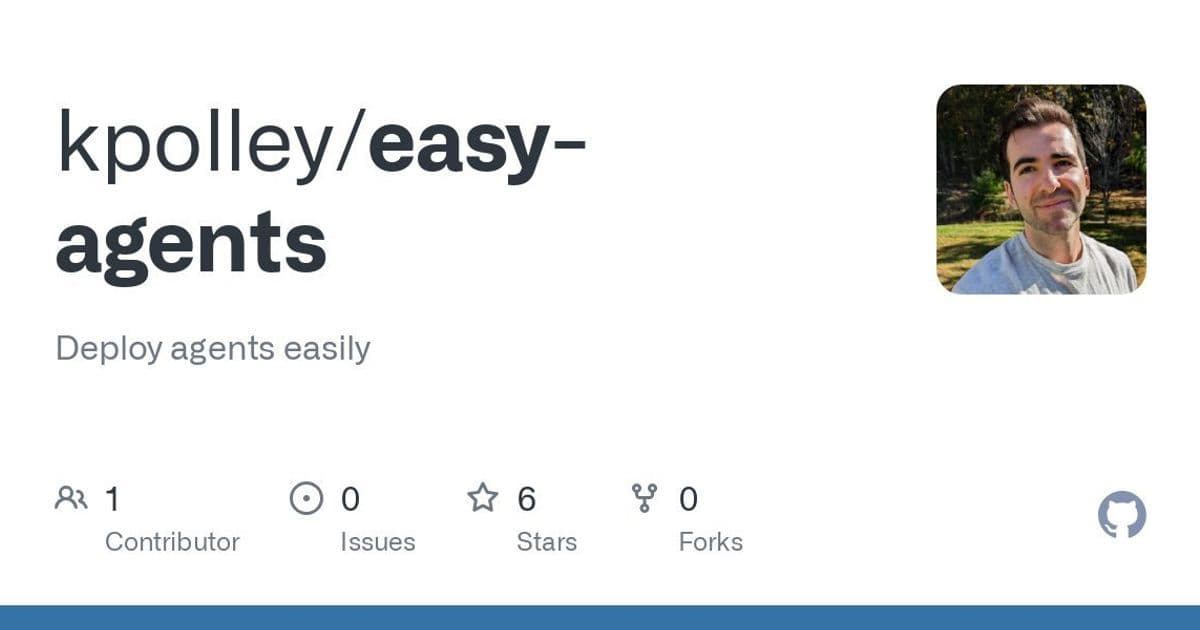Easy Agents introduces a revolutionary framework that replaces complex scripting with natural language instructions, enabling developers to build intelligent automation agents using LLMs like Claude Code and the Model Context Protocol. By simplifying workflows in security, DevOps, and operations, it promises to democratize AI-driven automation while enhancing maintainability and reducing technical debt.
For years, automation has been shackled by the need for intricate scripting—requiring developers to write, test, and maintain hundreds of lines of code for tasks as routine as security alert triage or dependency updates. Enter Easy Agents, an open-source framework that flips this paradigm on its head. Instead of wrestling with Python or Bash, teams define agent behaviors in plain English, leveraging large language models (LLMs) to orchestrate complex workflows. This approach not only accelerates development but also makes automation accessible to non-coders, transforming how organizations handle operational tasks.
The Core Concept: Natural Language as Code
At its heart, Easy Agents uses Claude Code—an LLM optimized for task execution—to interpret high-level instructions. Developers outline an agent's role and steps in simple prose, like defining a security investigator:
You are an expert security agent responsible for investigating alerts.
Steps:
1. Look up the alert by ID
2. Perform in-depth analysis
3. Generate a report
4. If valid, notify #security-alerts on Slack
This natural language 'script' is then executed by the framework, which dynamically handles ambiguities and errors. Under the hood, the Model Context Protocol (MCP) standardizes tool integration, allowing agents to interact with services like Slack, GitHub, or VirusTotal through simple configuration. For instance, an agent can pull data from Panther Security, analyze it via MCP, and act without manual coding.
Real-World Applications: From Security to DevOps
Easy Agents shines in practical scenarios, as demonstrated by its example workflows. The Security Alert Investigator agent autonomously triages threats by correlating data across platforms, assessing risks, and escalating issues—reducing response times from hours to minutes. Similarly, the Application Security Agent reviews GitHub code-scanning alerts, creates fix pull requests, runs tests, and assigns reviewers, turning vulnerability management into a hands-off process. Other agents, like the Supply Chain Security Agent, automate dependency updates and PR workflows, while the Weekly Summary Agent generates team reports from Linear tickets. These use cases highlight the framework's versatility, extending beyond cybersecurity to areas like customer support or product engineering.
Why It Matters: Democratizing Intelligent Automation
This framework addresses a critical pain point: the brittleness of traditional scripts. As one contributor notes, 'Natural language is maintainable—your operational playbooks become your automation logic.' By abstracting away API complexities, Easy Agents enables teams to iterate quickly. A developer can modify an agent's behavior by tweaking instructions, not refactoring code. The reliance on Claude Code ensures adaptability; the LLM handles edge cases, like rerouting tasks when a tool fails, which would typically require custom error handling. However, challenges remain, such as LLM hallucination risks or dependency on third-party MCP servers. Future enhancements, like human-in-the-loop interactions, could mitigate this by adding approval steps.
Getting started is straightforward: clone the GitHub repo, install dependencies with uv sync, and run the FastAPI server. Developers can create custom agents by defining instructions and MCP tools, or build new servers using FastMCP. As automation evolves, Easy Agents represents a leap toward intuitive, AI-augmented workflows—where the barrier between idea and implementation fades, empowering teams to focus on innovation, not syntax.

Comments
Please log in or register to join the discussion